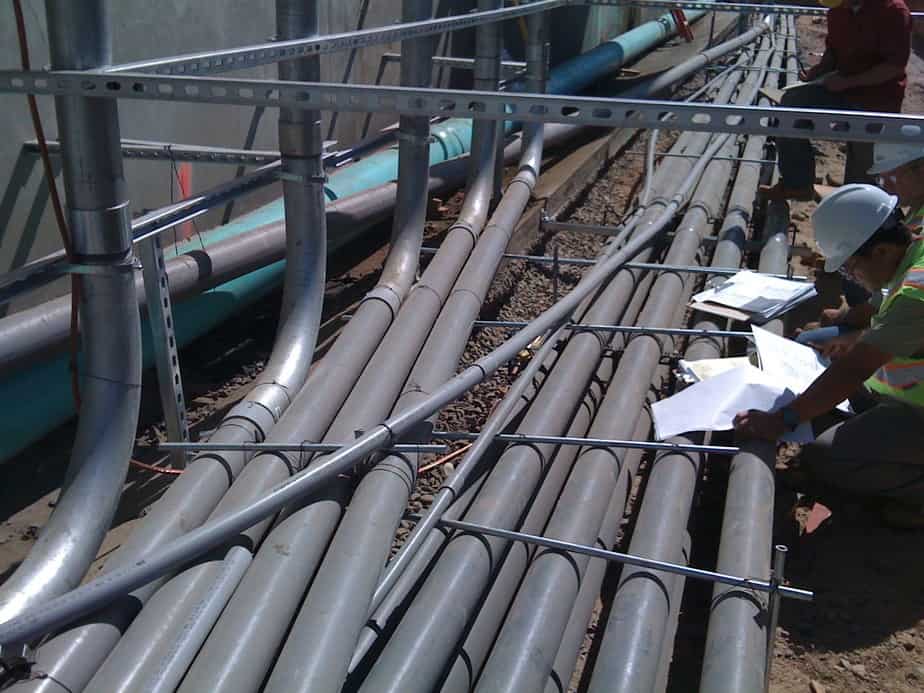What’s the work life balance of engineers? Some engineers have mastered the art of work-life balance, while others immensely struggle.
Just like any profession, there’s no one-size-fits-all answer. It boils down to these factors:
- Who you’re working for
- The role you’re in
- Your unique personality
Now, let’s dive into these factors, and I’ll give you the inside scoop on how to make the best decision for your work-life balance. Keep in mind, though, I’ll be generalizing a bit since there are always exceptions to every rule.
How do we define a good work life balance for an engineer?
Before we get too deep, let’s get clear on what we mean by a good work-life balance. Without a common understanding, we’ll just be spinning our wheels.
There’s no magic formula for work-life balance since we’re all different, with our own time management skills and life goals. So, there’s no one “right” way to live life.
Personally, I’m a workaholic because I’m passionate about what I do. I can’t remember the last time I clocked a mere 40-hour week. So, my take on this question might be different from other engineers.
I know some engineers who believe that even 40 hours per week is pushing it. They’d rather work just 20 to 30 hours per week.
For this discussion, let’s assume a 40-hour workweek is the sweet spot for a good work-life balance. This means you can leave work at work and enjoy your personal life.
1) Business owner
It’s no surprise that being a business owner means long hours and a tricky work-life balance, engineer or not.
As an engineer-business owner, you’ll juggle technical work and running the business side of things. Constantly switching gears can be tough, and this lifestyle isn’t for everyone.
On top of the long hours, work-related stress might follow you home, making it hard to fully unwind.
2) Open-minded employers in high tech

In the high-tech, newer engineering fields, you might find a better work-life balance, generally speaking. I’m talking about established companies like Google and Apple, not startups.
Once you’ve wrapped up your work, you can head home or maybe even work from home full-time.
All the engineers I know at these companies rave about the freedom and how it’s boosted their work-life balance. But remember, there are always exceptions.
Tesla and SpaceX are infamous for their relentless work hours, leaving little time for family and personal life. But hey, when you’re on a mission to take humanity to Mars, who has time to relax?
3) Startup companies versus large established companies
At a tech startup, the work culture often glorifies long hours. Everyone’s chasing that unicorn dream.
Keep in mind, though, most of these startups end up failing. Yet, the “more work equals success” mindset still runs rampant.
With limited funding and a tight deadline to find product-market fit, it’s no wonder everyone’s hustling from dawn to dusk.
So, it’s pretty clear that engineers won’t find a great work-life balance at these gigs. On the flip side, large companies typically offer better work-life balance, but things move at a slower pace.
Exceptions like Tesla and SpaceX remind us that not all big companies are alike. With Elon Musk at the helm and grand missions to accomplish, these companies run more like startups, meaning long hours are par for the course.
4) Design engineer versus operations engineer
Your specific engineering role has a huge impact on your work-life balance. Operations engineers often have busier schedules than design engineers.
As an operations engineer, you’re the go-to fixer when something breaks down. You’re basically on call like a doctor.
Meanwhile, design engineers usually face less pressure to get things done ASAP. That said, they might need to juggle multiple designs with different clients at once.
5) Traditional engineering fields
In my opinion, traditional engineering fields tend to be more conservative in their work approach. I’m talking about fields like:
- Civil
- Structural
- Power
- Geotechnical
In these fields, companies often expect engineers to clock in at 8 AM and clock out at 5 PM. But if you need to stay late, well, that’s just how it goes.
Old-school work models reign supreme here, so even if you’re twiddling your thumbs at your desk, you’ve gotta be there.
But when things get busy, you’ll definitely be taking work home with you.
Sure, you can stick to a 40-hour week. But if you’re not a time management ninja, like most folks, you might find yourself job hunting.
6) Fieldwork

Jobs with fieldwork mean long hours. You’ll be troubleshooting and fixing crucial equipment on the fly while traveling between sites.
In some cases, like for petroleum and mining engineers, your job demands your constant presence.
Imagine being a petroleum engineer stationed in the middle of the ocean for months. You won’t see your family for ages!
7) Defense and government work
Engineers often find a better work-life balance in government gigs.
Take California, for example. The state has tons of agencies monitoring how employers treat their employees, making government positions more chill by default. Government employers have to stick to strict guidelines, unlike private companies with more wiggle room.
8) Union work
Joining a union can mean a solid work-life balance as an engineer.
Your union will shield you from working crazy hours, so you won’t have to face your employer solo if your schedule gets out of hand.
This support can work wonders for your work-life balance.
9) Moving up the ranks in a company
Starting at the bottom rung of a company? You’ll probably enjoy a great work-life balance.
But as you climb the ranks, your responsibilities and salary will grow. More responsibility means more time at the office.
No matter how much you work, you might always feel like you’re playing catch-up. That’s why many people turn down promotions—they don’t want to trade their work-life balance for a bit of extra cash, like an additional $1,000 per month.
10) Employer’s level of flexibility
To score a job with a flexible employer, you gotta do your homework.
Some engineering companies give you plenty of wiggle room. Show up and leave whenever you like, as long as you meet those deadlines.
For super-efficient, self-motivated engineers, this setup is a dream come true. You might finish a 40-hour workload in just 20 hours!
11) Sales engineer
As a sales engineer, you might not do much hands-on work, but you’ll be meeting clients and answering emails.
The constant travel can be rough, especially if you’ve got a family. You’ll be city-hopping and living out of hotels. It’s not for everyone, so know yourself before signing up.
12) Your level of ambition

If you’re a go-getter aiming to squeeze every drop out of your career, maintaining a good work-life balance as an engineer might be tough.
You can’t have it all. A high salary and fast career growth usually mean working 60-hour weeks. Add interesting work to the mix, and you might have to kiss your work-life balance goodbye.
The coolest jobs with fat paychecks are rare and competitive. Plus, you’ll be surrounded by Type-A personalities, so you’ll need to step up your game.
It’s like trying to keep up with the Joneses.
13) Your work pace
Are you a slow worker? Do new concepts take a while to sink in?
If you nodded yes to either question, keeping a good work-life balance as an engineer might be a struggle.
A project that takes an average engineer 12 hours might take you 24. You’ll always be playing catch-up.
Even in a laid-back job, you’ll feel the heat to get your work done on time. Someone’s always waiting on you.
Companies will take what you give them
Remember, companies have productivity expectations, especially when things get busy. If you’re a speed demon, you might end up swamped with more work than you can handle.
Stand up for yourself in these situations! If you’re on a salary, don’t let a company exploit your efficiency without paying you more.
Another strategy is to hold onto finished work, creating some breathing room in your schedule. You can also tell your boss,
“I can’t take on more work right now. I’m swamped.”
To keep up with your workplace, find out the average output of an engineer and aim for that. This way, you can manage your workload and strike a good work-life balance, especially if you’re not gunning for a higher position.
14) Are you passionate about your work?
Finding passion in your work is the dream, right?
Of course, this doesn’t apply if you’re using work to escape personal problems—that’s a whole other issue.
When you find something you adore, it’s natural to work harder. We’re all on the hunt for that spark that gets us bouncing out of bed at 5 AM. When you find it, hold on tight! Just be ready for your work-life balance to take a hit.
Take the late, great Kobe Bryant. He woke up at 4 AM to work out during high school and his NBA career. He was at the top of his game, but it meant sacrificing family time.
15) Are you a rockstar engineer?
The better engineer you are, the more clout you’ll have at work. Heck, if you’re a superstar engineer, you might even call the shots on your schedule.
Think of high-profile entertainers who make crazy demands, like removing certain candy colors from their bowl. Engineering isn’t that wild, but you catch my drift.
So, focus on leveling up your engineering skills and proving your worth to your company. Make yourself indispensable, and your company will be more likely to meet your needs.
With expertise comes power, and you can use that to your advantage in engineering to create a suitable schedule.
If you’re not top-notch at what you do
Most of the time, nobody will care if you stay late at the office.
If impressing management is your sole motivation, it might backfire. Your boss could think you’re struggling to keep up.
But hey, if putting in extra hours boosts productivity, you might score a promotion. Some companies value employees who go the extra mile.
“Do engineers have good work life balance?” wrap up
There’s a job for everyone out there. You just need to find the right fit for your personality and goals.
In today’s dog-eat-dog world, job security is something you’ve got to fight for. Being exceptional at your job gives you more control, while being average makes you replaceable, and that limits your options.
So, strive to be a better engineer if you want more job security, better pay, and a flexible schedule. Oh, and don’t forget to check out my article on mastering time management from machines.
What’s your take on engineers’ work-life balance? Which positions do you think offer the best balance for engineers with a family?
